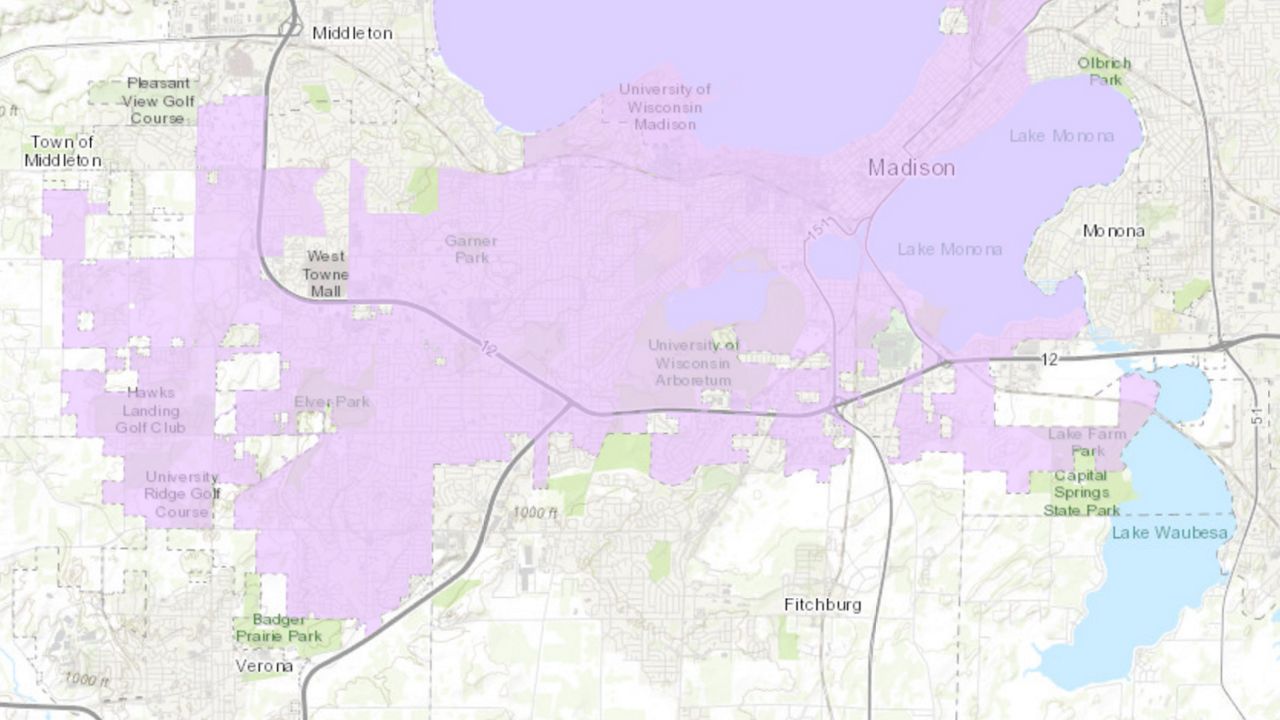MADISON, Wis. — Just one day after the ideological balance of the Wisconsin Supreme Court flipped in favor of liberal-leaning justices, a lawsuit has been filed over the state’s legislative maps as progressive groups argue the boundaries are gerrymandered.
The first goal of the lawsuit brought by Law Forward, a liberal-leaning firm based in Madison, on behalf of 19 Wisconsin voter plaintiffs, is to get the current Senate and Assembly maps declared unconstitutional by the state Supreme Court.
If the current maps were to be declared unconstitutional, it would then be up to the state’s high court to decide how to move forward. So far, no maps have been filed as alternatives to the current ones.
During her investiture ceremony Tuesday evening, newly sworn-in Justice Janet Protasiewicz, who won the nonpartisan race by double-digits in April, called serving without favor to “political pressure or our own personal beliefs” vital. The remarks differed heavily from her time on the campaign trail when Protasiewicz was outspoken about the Legislature’s maps and called them “rigged” at one point.
Political pressure is now mounting as progressive legal teams ask the Wisconsin Supreme Court to weigh in.
“Failure to do so would mean that our constitutional provisions are mere hollow promises, rather than declarations of individual rights as Article I of our constitution presents them,” Jeffery Mandell, co-founder and president of Law Forward, told reporters during a virtual briefing Wednesday.
Unlike past similar cases filed in federal court, this one is different because it makes state-based claims for a state court to consider. As such, the boundaries of Congressional districts in Wisconsin are not being challenged as part of the lawsuit.
“This is a first step, and we are asking the court to make certain declarations about what the Wisconsin Constitution says about partisan gerrymandering,” Dan Lenz, an attorney for Law Forward, said when asked about the focus on the Assembly and Senate maps. “Today, we are focused on the legislative maps and trying to get some relief there.”
The lawsuit makes several main arguments. Among them, the current maps violate the constitutional rights of Wisconsinites, including free speech, the promise of free government, and the treatment of some voters worse than others based on their political views and where they live.
Additionally, the suit argues there was a violation of the separation of powers when the state Supreme Court enacted the current maps after they were passed by the Legislature but vetoed by Democrat Gov. Tony Evers in 2021 and never successfully overridden with a supermajority, thereby limiting the power of the governor to veto bills.
Many of the legislative districts in Wisconsin are also not connected as required by the state’s constitution, according to the lawsuit.
Law Forward believes the state Supreme Court can and should decide those issues with the hopes of reaching an outcome before the 2024 elections by skipping the lower courts.
“The U.S. Supreme Court eventually decided that partisan gerrymandering claims are not justiciable under the federal constitution in the Rucho case, but the Supreme Court made clear that state courts can take a different approach,” Ruth Greenwood, director of the Election Law Clinic at Harvard Law School, explained. “Some state courts have done that. Places like Alaska, Pennsylvania, New Mexico.”

The petition filed Wednesday not only names the Wisconsin Elections Commission (WEC) and its officials but also half of the state Senate. Lawmakers elected in odd-numbered years were named as respondents because the petitioners believe boundaries are so constitutionally defective that nobody should be allowed to continue representing those districts until 2026 if new maps were to be put in place before then.
Since senators serve four-year terms with election cycles every two years, aligned with the presidential and gubernatorial cycles, some senators could be forced to run for a two-year term in a new district if the case is successful, even though they would be midway through their current one.
“If we are trying to get fair maps for the 2024 election, all of the Assembly districts are already up, and half of the Senate districts will be up for election in 2024, so we don’t need to name those senators because those districts will be reelected under new, fair maps,” Mandell added.
The move has drawn criticism from Republican legislative leaders, especially in the Senate.
“Wisconsin’s current legislative maps are valid and constitutional,” Majority Leader Devin LeMahieu, R-Oostburg, said in a statement. “Instead of redefining their radical political platform to match the values of everyday Wisconsinites, liberal Democrats are counting on judicial fiat to help them gain power.”
However, state Sen. Mark Spreitzer, D-Beloit, who was elected last November, said he welcomes the opportunity to run on fair maps and seek reelection again next year.
“As I have repeatedly said, voters should choose their elected officials, not the other way around,” Spreitzer stated. “Wisconsin should have had fair maps last year, but now we have a chance to have fair maps in 2024. Last November, I was elected to a four-year term, and I will continue to work hard to represent the constituents who elected me until the next election.”
Regardless of the outcome, some people worry the case could lead to future legal battles every decade when new maps are drawn based on the results of the U.S. Census. The attorneys pushed back on that notion when asked by reporters Wednesday, insisting that would not happen because their lawsuit seeks legal clarification.
“We are making arguments that are not political in nature,” Lenz added. “They are not seeking to impose a political fiat. It’s trying to end one, and the arguments we are making are deeply rooted in the text, the history, [and] the meaning of the Wisconsin Constitution. These are legal questions for the court to answer.”


